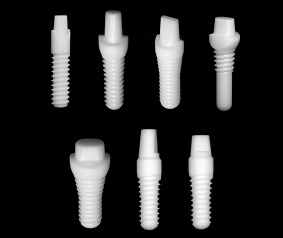9 Recovery Tips From a Plastic Surgeon (and Patient) to Make Healing Easier
 Dave.M - Plastic Surgery
Dave.M - Plastic Surgery
 Aug 22, 2025
Aug 22, 2025
Plastic surgery recovery doesn’t have to be painful or chaotic. Thanks to advancements in surgical techniques and post-op care, healing can be smoother—if patients are well-prepared. Dr. Alan Matarasso, a renowned plastic surgeon and former president of the American Society of Plastic Surgeons, shares key recovery advice, along with insights from personal patient experience.
1. Don’t Skip the Pre-Op Packet
Surgeons now provide detailed guides covering everything from pre-surgery prep to post-op care. Reading these in advance sets clear expectations and helps you mentally and physically prepare for what’s ahead.
2. Dress Smart on Surgery Day
Your outfit can make recovery easier. Choose loose, button-down tops, especially if you’re having breast or facial surgery. Avoid tops that need to be pulled over the head—comfort and accessibility matter.
3. Stock Up Before Surgery
Don’t wait until you’re home and groggy to gather essentials. Fill prescriptions early and grab easy-to-digest foods, electrolyte drinks like Gatorade, and any recommended items like compression garments or humidifiers ahead of time.
4. Open Your Bottles in Advance
Twisting open drink caps post-surgery can be a surprising struggle—especially after breast procedures. Pre-loosening bottle tops may sound silly, but it’s a small step that prevents big frustration.
5. Keep Your Phone Nearby
Expect a follow-up call from your surgeon. Keep your phone charged and within reach to answer questions, share concerns, or report symptoms. Your surgeon wants to hear from you—it’s a team effort.
6. Move Gently, Don’t Just Rest
Rest is vital, but don’t be totally sedentary. Gentle movement like ankle rolls or knee bends promotes circulation and prevents complications like blood clots. Each procedure varies, so follow your surgeon’s activity guidelines closely.
7. Limit Opioids When Possible
Many patients now recover comfortably using over-the-counter pain relief. While opioids may be necessary immediately post-op, they’re usually only needed for a day or two. Discuss non-opioid options with your surgeon.
8. No Question Is Too Small
Something feel off? Ask. Whether it’s swelling, discomfort, or something you’re unsure is “normal,” your surgeon expects questions. Stay connected and don’t hesitate to reach out—your peace of mind is part of the healing process.
9. Eat Well Before Surgery
Avoid heavy, salty, or sugary meals the night before. Focus on a nutrient-dense dinner to support digestion and reduce the risk of post-op constipation, which is a common side effect of surgery and medications.
Final Thought:
Healing starts before the surgery begins. Thoughtful preparation, honest communication, and small practical steps can make your recovery process far less stressful. You’re not just healing—you’re setting the stage for your best results.
Trending News
-

The New Face of Plastic Surgery: How Ozempic, Hormones, and Social Media Are Reshaping Aesthetics in 2025 Dave.C
-

Are Your Implants Covered? Understanding Plastic Surgery Complication Insurance David.C
-

How to Treat Pigmentation Changes on Melanin-Rich Skin Post-Eczema David.C
-

10 Reasons Why Metal-Free CeraRoot Zirconia Dental Implants Are Superior Dr. Azadeh Khajavi - Excellence Dental
-

9 Recovery Tips From a Plastic Surgeon (and Patient) to Make Healing Easier Dave.M
